I am new to PHP. I have a function that works (the value printed to the screen from within the function is exactly what I expect), but only sometimes returns the answer (other times it returns NULL). I believe I have isolated the error to something involving my use of the static feature of PHP, but I am not sure how exactly I'm transgressing/how to fix it. I tried to work around it by creating a new non static variable to store the result, and that improved my code from always returning NULL to only sometimes returning NULL. The erring function is part of a larger suite of programs I wrote, so I'll include it and the testing function I use to check that it works.
probGen.php
<?
require_once("randX.php");
require_once("../displayArray.php");
error_reporting(E_ERROR | E_WARNING | E_PARSE);
function probGen(array $arr, float $control = 0.01)
/*
* Generates a valid, random probability distribution for a given array of elements, that can be used in conjunction with "probSelect()".
* Input:
$arr: An array of elements.
$control: A value that decides how much mass is allowed to be unilaterally dumped onto one element. A high value would permit distributions where most of the mass is concentrated on one element.
If an invalid value is provided, the default is used.
* Output: An associative array where the keys are the elements in the original array, and the values are their probabilities.
*/
{
$control = ($control <= 1 && $control >= 0)?($control):(0.01); #Use the default value if an invalid number is supplied.
static $result = []; #Initialises $result with an empty array on first function call.
static $max = 1; #Initialises $max with 1 on first function call.
foreach ($arr as $value)
{
$x = randX(0, $max); #Random probability value.
$result[$value] = ($result[$value] + $x)??0; #Initialise the array with 0 on first call, and on subsequent calls increment by $x to assign probability mass.
$max -= $x; #Ensures that the probability never sums to more than one.
}
print("<br>sum = ".array_sum($result)."<br><br>");
displayArray($result);
/*
* After the execution of the above code, there would be some leftover probability mass.
* The code below adds it to a random element.
*/
$var = array_values($arr);
if($max <= $control) #To limit concentration of most of the probability mass in one variable.
{
$result[$var[rand(0,(count($var)-1))]] += $max; #Selects a random key and adds $max to it.
displayArray($result);
print("<br>sum = ".array_sum($result)."<br><br>");
$sol = $result;
return $sol;
}
else
probGen($arr, $control);
}
?>
test.php
<?
/*
* This file contains some functions that can be used for assigning probabilities to an array of elements or selecting an element from said array with a given probability.
*/
require_once("../displayArray.php");
require_once("confirm.php");
require_once("randX.php");
require_once("probGen.php");
require_once("probSelect.php");
$test = ["California" => 0.37, "Florida" => 0.13, "New York" => 0.28, "Washington" => 0.22];
$testX = array_keys($test);
var_dump(probGen($testX));
/*for ($i=0; $i < 100 ; $i++)
{
print(var_dump(confirm(probGen($testX))));
}*/
?>
Screenshot of probGen() working as intended:

Screenshot of probGen() failing:

From testing I've been able to determine that probGen() fails if the recursion occurs more than once.